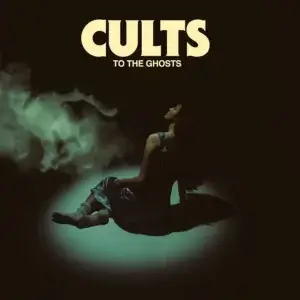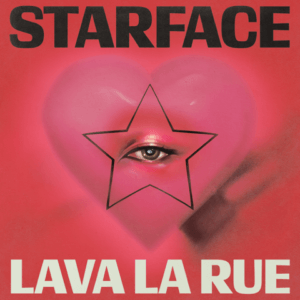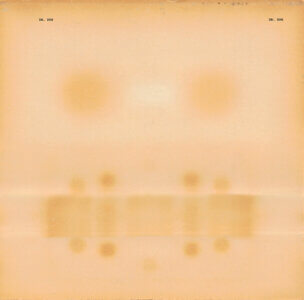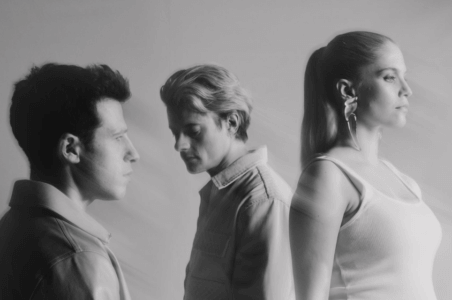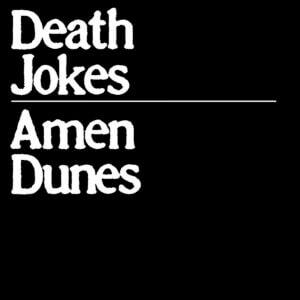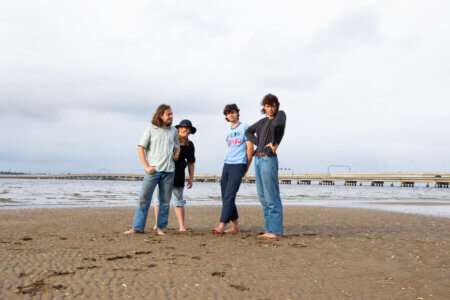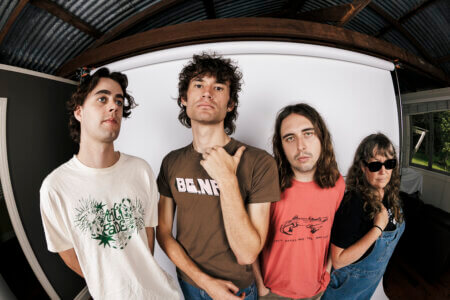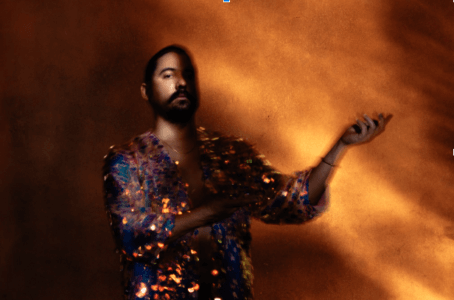The Intuitive Openness of METZ
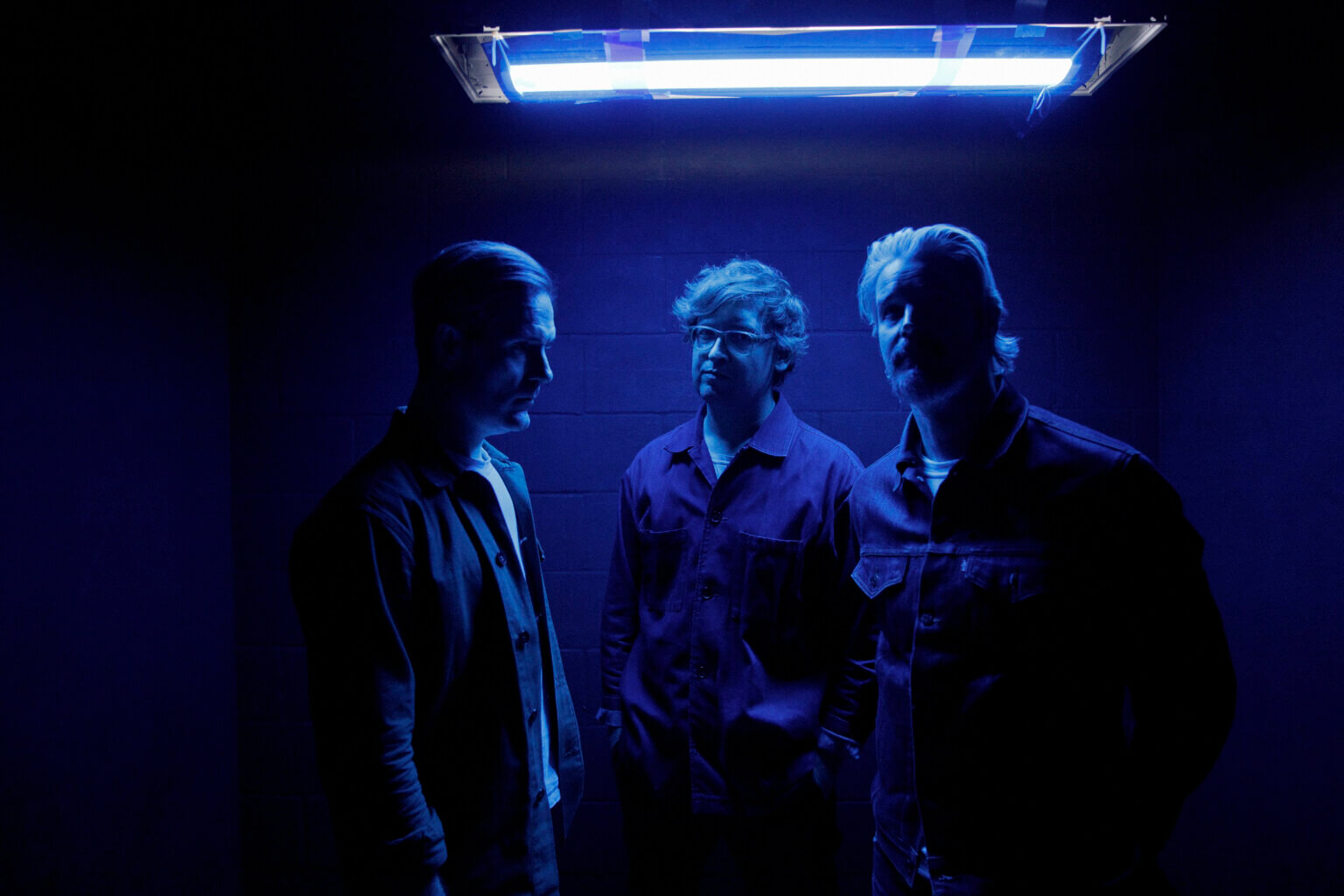
Since forming in Ottawa in 2007, Toronto-based trio METZ have unleashed a steady torrent of turbulent, corrosive punk music that leaves listeners reeling. Though the band – singer/guitarist Alex Edkins, drummer Hayden Menzies, and bassist Chris Slorach – has gradually added atmospheric texture to their music that creates breathing room, it’s still disorienting. The title of their latest album (and fifth overall), Up on Gravity Hill, evokes this very sensation. On a gravity hill, trees appear to lean at odd angles. Downhill slopes seem to slope uphill and vice versa. These optical illusions are caused by the absence of reliable visual reference points, mainly a clear horizon; like the worsening crises of today – a topic METZ have explored in the past, specifically addiction, isolation, the state of the media, and all the anxiety and paranoia it spurs – there’s no end in sight.
“It was sort of a term for the overarching feeling of life,” Edkins tells Northern Transmissions over Zoom from Toronto. “The record deals a lot with life, but there’s a lot of death in there, too. It’s this idea that when you’re at the top, you’re no longer going up, and maybe you’re starting to go down. All those ideas of distortion and what is real and what isn’t, that all plays into all of our daily lives in a huge way.”
Though METZ felt like they hit their creative stride with their previous album, 2020’s Atlas Vending, on which they stretched their pummeling anthems into more harmonic songs with wider dimensions, like all musicians, the band was forced to a grinding halt by the pandemic. But the members stayed busy. Slorach joined Detroit hardcore collective the Armed, Menzies focused on his visual art practice as a painter, and Edkins threw himself into music. Following his creative intuition, Edkins emerged with his first solo outing, a self-titled album powered by raw hooks and melodies as Weird Nightmare. He also joined forces with Graham Walsh of Toronto vets Holy Fuck to form Noble Rot, a boundless electronic dance project. “It felt way too early to dive right back into METZ because we had just finished Atlas Vending, this record that we loved that we’re really proud of and spent years making.
“It felt really freeing,” Edkins says, reflecting on his pandemic output. METZ have been going pretty much full-time since they formed, and being in the same band for song long, “You can have blinders on. You can have your head down. So you can get stuck creatively.”
Edkins made Weird Nightmare in particular with no expectations, unsure – and unconcerned – whether anyone would hear the album. “But the cool thing that come out of that was that it really magnified how much I loved METZ too. I really do think we have something special. It reminded me how much I love this thing the three of us do together. Diving back in on this record, I genuinely feel like we were reinvigorated in a way that we maybe we hadn’t been in a while.” Inevitably, when METZ finally reconvened for Up on Gravity Hill, Edkins carried his intuitive confidence with him. But broader than the changes in his creative habits, the pandemic also marked a restart for the band.
“Everyone in the world can understand. We all went through the same thing. Coming out the other end, I usually wouldn’t use such grand terminology, but it was a new chapter, and it wasn’t because we wanted it to be. The positive we can take from it is that we were sort of starting fresh, and all three of us were really open to expanding on the idea of METZ, on what it was.
What does that mean? What does that sound like? We were all sharing that motivation to push it further and try new things.”
Despite these open-ended questions – and METZ’s willingness to explore them – one thing is clear: they’re more confident than ever, and their confidence fuels their ambitions to push their own boundaries. This confidence and desire opened up space for them to bring in other musicians for the first time including Amber Webber and Owen Pallett.
“She’s always been one of my favourite parts of Black Mountain,” Edkins enthuses. “The sound of Stephen [McBean] and her singing together is just such a cool thing. We just knew she would fit this vibe. We’re really honoured that she said yes.”
As for Pallett, he’s someone Edkins has always admired. “When I moved here from Ottawa, he was very much one of the people doing wildly interesting stuff in Toronto and making it a cooler city than it really is.”
Wanting to make their songs as grandiose as possible, METZ imagined strings, so Pallett was a “no-brainer.” “We all thought of Owen right away. He just knocked it out of the park sending us layers upon layers of cellos and strings. He comes from the noise rock and avant-garde scene, so he totally gets what we’re about.”
Edkins attributes METZ’s new collaboration streak to a new headspace. “We had never had a guest on a METZ record, and then we have two all of a sudden. It was like the floodgates had opened. Instead of this insular three-person gang that no one could ever be included in or understand, we embraced this idea of inviting people into the fold, and immediately we were so excited by the possibilities. Having people we really love and respect their work and them willing to be part of what you’re doing is just an incredible feeling.”
Speaking of collaboration, Edkins also gives props to Seth Manchester, who engineered and mixed Up on Gravity Hill and Atlas Vending. (Manchester also mixed Weird Nightmare.) “We really trusted in Seth, too,” Edkins says. “He’s certainly never content with repeating anything we’ve done before. He was a big part of extending our ambitions and what we could do. Seth, Amber, Owen – all big parts of that.”
Despite their creative ambitions, METZ still questioned themselves a bit. “We were going so far that we did have that feeling of, ‘I like this, but…’ I think you should feel a little bit uncomfortable. The songs that give you butterflies in the stomach, like, you get nervous about it, there were a couple,” Edkins says with a laugh. When asked for an example from Up on Gravity Hill, Edkins offers “Light Your Way Home,” “sort of a dreamy, dirge-y, super slow [song] for us. Hayden’s tempo leans towards incredibly fast, usually, so this was totally new territory.
“A similar one would be ‘Superior Mirage,’” Edkins adds. ”It has a LinnDrum on it. It feels slightly ‘80s music-influenced on the verses in ways we never attempted or felt would fit a song of ours. But I really loved how that song came together. It’s one of my favourites. It has this relentless Motorik idea where it was supposed to be a driving tune, and that’s why we brought in the drum machine to really double down on that idea.” Once again, Edkins credits Manchester, who made the call to keep the “crummy sounding junkyard drum machine” samples that appeared on the “Superior Mirage” demos.
As refreshing as it’s felt for METZ to push their own boundaries, even without making a conscious effort to do so, “There’s a legitimate chemistry between the three of us and a natural
way that we play that will always be there,” Edkins says. “I think we genuinely have a sound that we didn’t scheme up. We’ve been doing this full time for quite a few years. We’ve never been more confident in our abilities and our instincts. We’re feeling the confidence to go places we haven’t gone. That’s all you can really hope for as a musician, is to feel unincumbered to follow your gut and do what you want in that moment. I think we were all surprised where we ended up. … The Weird Nightmare thing sort of crept into the METZ world, and we rode that wave of “Maybe there’s no limits to what we can sound like.”
Order Weird Nightmare by METZ HERE
Latest Reviews
Tracks
Advertisement
Looking for something new to listen to?
Sign up to our all-new newsletter for top-notch reviews, news, videos and playlists.


